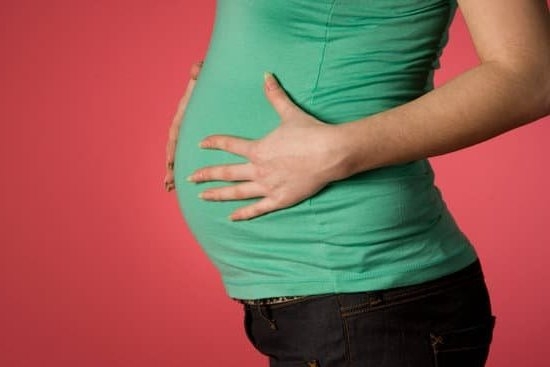During pregnancy, it is common for some expecting mothers to experience lower than normal blood pressure levels, a condition known as hypotension. Understanding what causes low blood pressure in pregnancy is crucial for ensuring the health and well-being of both the mother and baby throughout this delicate period. Low blood pressure during pregnancy can bring about various symptoms and potential risks, making it essential to be aware of the factors contributing to this condition.
Low blood pressure in pregnancy can result from a combination of hormonal changes, lifestyle factors, and other underlying health issues that may arise during gestation. These factors can affect how the body regulates blood flow and pressure, impacting the overall cardiovascular system’s functioning. Additionally, certain medications or preexisting conditions may also contribute to low blood pressure levels in pregnant women.
In this article, we will delve into the significance of understanding blood pressure and its variations during pregnancy, common symptoms associated with low blood pressure in pregnant women, as well as an exploration of the various factors influencing this condition. By shedding light on these aspects, expectant mothers can arm themselves with valuable knowledge to effectively manage their blood pressure levels and ensure a healthy pregnancy journey.
Understanding Blood Pressure and Its Importance During Pregnancy
During pregnancy, understanding blood pressure and its importance is crucial for the health and well-being of both the mother and the developing baby. Blood pressure refers to the force of blood against the walls of the arteries as it circulates through the body. In pregnant women, blood pressure plays a vital role in ensuring that enough oxygen and nutrients are delivered to the placenta and ultimately to the fetus.
What Causes Low Blood Pressure in Pregnancy?
Low blood pressure, also known as hypotension, can occur during pregnancy due to various factors. One common cause is hormonal changes that take place in a woman’s body during pregnancy. The expansion of blood vessels to accommodate increased blood flow to the uterus and placenta can lead to a drop in blood pressure. Additionally, as a pregnant woman’s body produces more progesterone, this hormone can cause blood vessels to relax, further contributing to low blood pressure.
Other Factors Contributing to Low Blood Pressure in Pregnancy
Apart from hormonal changes, there are other factors that can contribute to low blood pressure in pregnant women. Dehydration can play a significant role in lowering blood pressure levels, so it is essential for pregnant women to stay adequately hydrated.
Prolonged periods of standing or sitting without moving can also lead to decreased blood flow back to the heart and result in low blood pressure. Furthermore, certain medical conditions such as anemia or underlying heart problems can exacerbate low blood pressure during pregnancy.
Potential Symptoms of Low Blood Pressure in Pregnant Women
During pregnancy, low blood pressure, also known as hypotension, can be a common issue that many expectant mothers face. Understanding the potential symptoms of low blood pressure in pregnant women is essential in order to recognize the signs and seek appropriate care. Some of the most common symptoms include dizziness or lightheadedness, especially when changing positions quickly, fainting or feeling like you might faint, blurred vision, nausea, fatigue, and rapid heartbeat.
Low blood pressure during pregnancy can be caused by a variety of factors. One of the main reasons for low blood pressure in pregnant women is the expansion of blood vessels due to hormonal changes in the body. This can lead to a decrease in blood pressure as more space is created for blood flow throughout the body.
Additionally, dehydration or inadequate fluid intake can also contribute to low blood pressure during pregnancy. Other factors such as standing for long periods of time, lack of physical activity, and certain medical conditions can also play a role.
It is important for pregnant women experiencing symptoms of low blood pressure to consult with their healthcare provider to determine the underlying cause and receive appropriate treatment. In some cases, lifestyle modifications such as staying hydrated, eating small frequent meals, avoiding standing for extended periods, and wearing compression stockings may help alleviate symptoms.
However, if low blood pressure becomes severe or persistent, medical intervention may be necessary to ensure the health and well-being of both the mother and the baby.
| Cause | Description |
|---|---|
| Hormonal Changes | Expansion of blood vessels due to hormonal changes can lead to low blood pressure. |
| Dehydration | Inadequate fluid intake or dehydration can contribute to lower blood pressure levels in pregnant women. |
| Lifestyle Factors | Standing for prolonged periods or lack of physical activity are among lifestyle factors that can influence blood pressure levels during pregnancy. |
Factors That Contribute to Low Blood Pressure in Pregnancy
There are several factors that can contribute to low blood pressure during pregnancy. One of the main reasons for this condition is the hormonal changes that occur in the body. During pregnancy, hormonal fluctuations can cause the blood vessels to relax and widen, leading to a decrease in blood pressure. This can result in symptoms such as dizziness, lightheadedness, and fatigue.
Dehydration is another common factor that can contribute to low blood pressure in pregnant women. When the body does not have enough fluids, it can affect blood volume and lead to a drop in blood pressure. It is important for pregnant women to stay hydrated by drinking plenty of water throughout the day to help maintain healthy blood pressure levels.
In addition, certain medical conditions such as anemia or hypoglycemia can also play a role in causing low blood pressure during pregnancy. Anemia, which is a decrease in red blood cells or hemoglobin levels, can lead to reduced oxygen delivery to tissues and organs, resulting in low blood pressure.
Hypoglycemia, on the other hand, occurs when blood sugar levels drop too low, impacting overall cardiovascular function and contributing to lower blood pressure levels. Monitoring these conditions and working with healthcare providers to manage them effectively can help prevent complications related to low blood pressure during pregnancy.
The Role of Hormonal Changes in Pregnancy and Their Effect on Blood Pressure
Hormonal changes play a crucial role in pregnancy and can have a significant impact on blood pressure levels in expectant mothers. During pregnancy, the body undergoes various hormonal shifts to support the development of the fetus and prepare the mother for childbirth. One key hormone that affects blood pressure is progesterone, which helps relax the walls of blood vessels. This relaxation can lead to a decrease in blood pressure, especially during the first and second trimesters of pregnancy.
Additionally, another hormone called relaxin is produced during pregnancy to soften the cervix and pelvic ligaments in preparation for labor. While relaxin is essential for childbirth, it can also contribute to lower blood pressure by relaxing blood vessels throughout the body. These hormonal changes are natural adaptations that allow more blood to flow to the developing baby; however, they can result in symptoms of low blood pressure such as dizziness, lightheadedness, and fatigue in pregnant women.
It is essential for pregnant women experiencing low blood pressure to stay hydrated and maintain a well-balanced diet to support healthy blood pressure levels. Incorporating foods rich in nutrients like iron, folate, and vitamin C can be beneficial for both maternal health and fetal development.
Moreover, engaging in light to moderate physical activity under medical supervision can help improve circulation and prevent sudden drops in blood pressure during pregnancy. By understanding the role of hormonal changes in pregnancy and their effects on blood pressure, expectant mothers can take proactive steps to manage their health effectively for a smooth pregnancy journey.
| Hormonal Changes | Effect on Blood Pressure |
|---|---|
| Progesterone | Relaxes blood vessel walls leading to lower blood pressure |
| Relaxin | Softens ligaments but can also relax blood vessels causing decreased blood pressure |
Lifestyle Factors That Can Influence Blood Pressure Levels During Pregnancy
During pregnancy, changes in blood pressure levels can be influenced by various lifestyle factors that pregnant women should be aware of. These factors can either help maintain healthy blood pressure or contribute to low blood pressure during pregnancy. It is essential for expectant mothers to understand how their choices and habits can impact their blood pressure levels and overall well-being during this crucial time.
Diet and Nutrition
A balanced diet plays a significant role in regulating blood pressure levels during pregnancy. Consuming adequate amounts of nutrients such as potassium, magnesium, and calcium can help support cardiovascular health and prevent low blood pressure. On the other hand, excessive consumption of high-sodium foods can lead to fluid retention and elevated blood pressure. Pregnant women are encouraged to follow a nutritious diet rich in fruits, vegetables, whole grains, lean proteins, and healthy fats to maintain optimal blood pressure levels.
Hydration
Staying hydrated is vital for pregnant women to support circulation and maintain healthy blood pressure. Dehydration can lead to low blood pressure, dizziness, and fatigue. It is recommended for expectant mothers to drink plenty of water throughout the day and limit caffeinated beverages which may have diuretic effects that increase the risk of dehydration. Adequate hydration is essential for the proper functioning of all bodily systems, including maintaining stable blood pressure levels during pregnancy.
Physical Activity
Regular exercise can help improve cardiovascular health and lower the risk of developing low blood pressure during pregnancy. Engaging in moderate-intensity activities such as walking, swimming, or prenatal yoga can enhance circulation, strengthen the heart muscle, and regulate blood pressure levels.
However, pregnant women should consult with their healthcare provider before starting a new exercise routine to ensure it is safe for both mother and baby. By incorporating regular physical activity into their daily routine, expectant mothers can promote overall well-being and reduce the likelihood of experiencing low blood pressure episodes during pregnancy.
Effects of Low Blood Pressure on the Mother and the Developing Baby
Low blood pressure, also known as hypotension, can have various effects on both the mother and the developing baby during pregnancy. When a pregnant woman experiences low blood pressure, it may result in symptoms such as dizziness, fatigue, and fainting spells. These symptoms can impact the mother’s overall well-being and daily activities, making it important to address and manage low blood pressure effectively.
In addition to affecting the mother, low blood pressure can also have implications for the developing baby. In cases of severe hypotension, reduced blood flow to the placenta can occur, potentially leading to complications such as intrauterine growth restriction (IUGR) or preterm birth. It is essential for healthcare providers to monitor blood pressure levels regularly during prenatal visits to ensure optimal health for both the mother and the baby.
Various factors contribute to low blood pressure in pregnancy. Hormonal changes play a significant role in decreasing vascular tone and cardiac output, which can result in lower blood pressure levels. Other factors such as dehydration, anemia, genetic predisposition, or certain medications may also contribute to hypotension during pregnancy. Understanding these factors can help healthcare providers develop appropriate management strategies to promote a healthy pregnancy for both the mother and the developing baby.
Diagnosis and Treatment Options for Low Blood Pressure in Pregnant Women
Low blood pressure, also known as hypotension, is a common condition that can occur during pregnancy. It is essential for expectant mothers to be aware of the causes and symptoms of low blood pressure to ensure a healthy pregnancy. In this section, we will delve into the diagnosis and treatment options available for pregnant women experiencing low blood pressure.
Diagnosing low blood pressure during pregnancy often involves monitoring a woman’s blood pressure readings over time. Healthcare providers typically take multiple readings to establish a pattern and determine if the blood pressure levels are consistently low. Additionally, other tests may be conducted to rule out any underlying conditions contributing to low blood pressure in pregnancy.
Treatment options for low blood pressure in pregnant women vary depending on the severity of the condition and its underlying cause. In some cases, making simple lifestyle changes can help regulate blood pressure levels. Here are some potential treatment options for managing low blood pressure during pregnancy:
- Increase salt intake: Consuming slightly more salt than usual can help raise blood pressure.
- Stay hydrated: Dehydration can contribute to low blood pressure, so it is crucial to drink plenty of water.
- Avoid standing for long periods: Prolonged standing can cause blood to pool in the legs, leading to a drop in blood pressure.
- Wear compression stockings: These stockings help prevent pooling of blood in the legs and can improve circulation.
- Regular exercise: Gentle exercises like walking or prenatal yoga can help improve circulation and regulate blood pressure.
Tips for Managing Low Blood Pressure During Pregnancy to Ensure a Healthy Pregnancy and Delivery
Low blood pressure during pregnancy can be concerning, but with the right management techniques, women can ensure a healthy pregnancy and delivery. It is important for expecting mothers to stay informed about the potential causes of low blood pressure in pregnancy, such as hormonal changes and lifestyle factors. By understanding these factors, women can take proactive steps to manage their blood pressure levels effectively.
One key aspect of managing low blood pressure during pregnancy is to stay well-hydrated and maintain a balanced diet. Dehydration can exacerbate low blood pressure symptoms, so it is essential for pregnant women to drink plenty of water and eat nutritious meals. Additionally, avoiding long periods of standing or sitting in one position can help regulate blood flow and prevent episodes of dizziness or lightheadedness.
Regular prenatal visits are crucial for monitoring blood pressure levels throughout pregnancy. Healthcare providers can offer guidance on lifestyle modifications, such as incorporating regular exercise into a daily routine and wearing compression stockings to improve circulation. In some cases, medication may be prescribed to help stabilize blood pressure. By working closely with healthcare professionals and following their recommendations, women can effectively manage low blood pressure during pregnancy and promote overall well-being for both themselves and their developing baby.
Frequently Asked Questions
What Triggers Low Blood Pressure During Pregnancy?
Low blood pressure during pregnancy can be triggered by various factors such as dehydration, hormonal changes, standing up too quickly, heat exposure, or underlying medical conditions like anemia. It is important for pregnant women to stay well-hydrated and avoid sudden movements to help regulate blood pressure.
When Should I Worry About My Blood Pressure During Pregnancy?
Pregnant women should be concerned about their blood pressure if they experience symptoms such as dizziness, fainting, blurred vision, shortness of breath, or chest pain. Additionally, a significant drop in blood pressure measurements compared to baseline readings should also prompt medical attention to rule out any complications like preeclampsia.
Does Low Blood Pressure in Pregnancy Means Boy or Girl?
There is no scientific evidence linking low blood pressure during pregnancy to predicting the sex of the baby. The baby’s gender is determined by genetics and biological factors rather than the mother’s blood pressure levels. Low blood pressure is a common occurrence in pregnancy and does not have any direct correlation with the gender of the baby.

Welcome to my fertility blog. This is a space where I will be sharing my experiences as I navigate through the world of fertility treatments, as well as provide information and resources about fertility and pregnancy.





